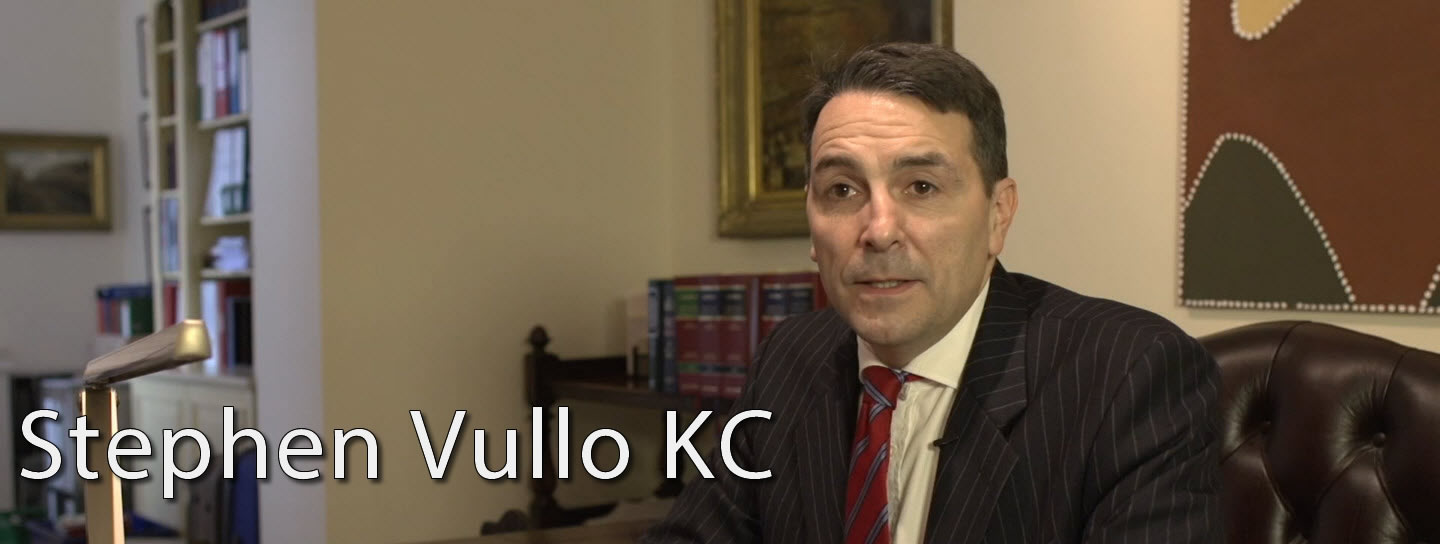A trial judge had correctly ruled that the contents of a conversation revealing details about a rape victim’s previous sexual behaviour were not admissible under the Youth Justice and Criminal Evidence Act 1999 s.41.



A trial judge had correctly ruled that the contents of a conversation revealing details about a rape victim’s previous sexual behaviour were not admissible under the Youth Justice and Criminal Evidence Act 1999 s.41.
ABUSE OF POSITION OF TRUST ADMISSIBILITY CONSENT CRIMINAL EVIDENCE CRIMINAL LAW HONEST BELIEF RAPE SENTENCE LENGTH SENTENCING SEXUAL BEHAVIOUR YOUTH JUSTICE AND CRIMINAL EVIDENCE ACT 1999 s.41
Where a 12-year-old complainant had alleged sexual abuse by her uncle, the trial judge had been entitled to refuse to allow her to be cross-examined about her previous sexual experience. What, if any, sexual experienceshe might have had was not an appropriate area of investigation and was not of substantial probative value in relation to whether she might have been lying about the conduct of her uncle .
ADMISSIBILITY BAD CHARACTER CRIMINAL EVIDENCE CRIMINAL JUSTICE ACT 2003 s.100 CROSS-EXAMINATION SEXUAL ASSAULT OF CHILD UNDER 13 SEXUAL BEHAVIOUR YOUTH JUSTICE AND CRIMINAL EVIDENCE ACT 1999 s.41
On the facts of the case, the defendant’s conviction for rape was not rendered unsafe by the judge’s failure, after acceding to a request from the jury for the replaying of the complainant’s ABE interview, to warn the jury not to place too much emphasis on what they had seen during the recording since they had not also viewed, at the same time, the evidence of any other witness, in particular the defendant.
CRIMINAL EVIDENCE CRIMINAL PROCEDURE JURY DIRECTIONS POLICE INTERVIEWS RAPE SENTENCE LENGTH SENTENCING VICTIMS
A conviction for attempted rape was quashed following the admission of new DNA evidence taken from clothing worn by the victim at the time of the offence.
ATTEMPTS CRIMINAL APPEAL ACT 1968 s.23 CRIMINAL EVIDENCE DNA EVIDENCE IDENTIFICATION NEW AND COMPELLING EVIDENCE RAPE UNSAFE CONVICTIONS
A judge had been correct in not permitting a defendant to cross-examine a complainant concerning a telephone recording where the complainant had allegedly confessed to murder, as it was not relevant to the issues in the case, namely whether the complainant had consented to intercourse, and fabricated evidence.
BAD CHARACTER CRIMINAL EVIDENCE CRIMINAL JUSTICE ACT 2003 s.100 CROSS-EXAMINATION INTIMIDATION OF WITNESSES PROPENSITY RAPE RELEVANCE
New evidence as to a complainant’s reliability and truthfulness, which was not disclosed at the trial in 2001 of a man charged with indecently assaulting under-age children and attempted buggery of an under-age boy when he worked at children’s homes in the 1970s, would not have affected the safety of his convictions even if it had been admissible.
“HISTORIC” OFFENCES BUGGERY CHILD SEX OFFENCES CHILDREN’S HOMES CRIMINAL EVIDENCE CRIMINAL JUSTICE ACT 2003 s.114 CRIMINAL PROCEDURE EFFECT ON SAFETY OF CONVICTIONS INDECENT ASSAULT NEW EVIDENCE AS TO COMPLAINANTS’ CREDIBILITY AND RELIABILITY PROSECUTION DISCLOSURE YOUTH JUSTICE AND CRIMINAL EVIDENCE ACT 1999 s.41
In the circumstances, the fact that a complainant had made an unfounded allegation of rape against an accused in a retrial did not cast doubt on the reliability of her evidence against him in an earlier trial so as to render unsafe his conviction for sexual assault in that earlier trial.
CREDIBILITY CRIMINAL EVIDENCE FRESH EVIDENCE RAPE RELIABILITY RELIABILITY OF COMPLAINANT’S EVIDENCE ON SEXUAL ASSAULT SAFETY OF CONVICTION SEXUAL ASSAULT
A judge had not erred in rejecting a submission of no case to answer in a trial for sexual assault where the only evidence against the accused was identification evidence from the victim. However, when admitting evidence of the accused’s previous conviction, the jury should have been told that the accused had only been included in an identification procedure because of his conviction.
ADMISSIBILITY CRIMINAL EVIDENCE CRIMINAL PROCEDURE IDENTIFICATION PREVIOUS CONVICTIONS SEXUAL ASSAULT SUMMING UP TURNBULL DIRECTIONS UNSAFE CONVICTIONS
In a case in which the defendant failed to mention in interview a matter on which he later relied in his defence, but that matter was one which the jury might find to be a lie in any event, the judge was right to give a direction which combined elements of a Lucas direction and a direction under the Criminal Justice and Public Order Act 1994 s.34.
CREDIBILITY CRIMINAL EVIDENCE CRIMINAL JUSTICE AND PUBLIC ORDER ACT 1994 s.34 CRIMINAL PROCEDURE FALSE STATEMENTS JURY DIRECTIONS LUCAS DIRECTIONS RAPE SENTENCE LENGTH SENTENCING
The court gave guidance regarding the assessment of a complainant’s mental capacity in a criminal trial when the alleged offences involved proof of a lack of consent.
ASSESSMENT OF COMPLAINANT’S MENTAL CAPACITY BURDEN OF PROOF CONSENT CRIMINAL EVIDENCE CRIMINAL LAW CRIMINAL PROCEDURE (INSANITY) ACT 1964 s.4A EXPERT WITNESSES MENTAL CAPACITY MENTAL CAPACITY ACT 2005 s.2 MENTAL HEALTH PERSONS LACKING CAPACITY s.1 s.1(2) s.2(1) s.2(4) s.30 s.30(2)(a) s.31 s.31(2)(a) s.32 s.32(2)(a) s.33 s.33(2)(a) s.4 s.4(5) s.42 s.44 s.74 s.75 s.76 SEXUAL ASSAULT SEXUAL OFFENCES SEXUAL OFFENCES ACT 2003 s.3 SEXUAL OFFENCES INVOLVING PROOF OF LACK OF CONSENT STANDARD OF PROOF
Please use the form below to make contact. Your email will be responded to promptly (we endeavour to respond to all email enquiries within one hour). Alternatively, you can call Stephen's firm, Twelve Tabulae Limited, on +44 (0) 203 846 5801.